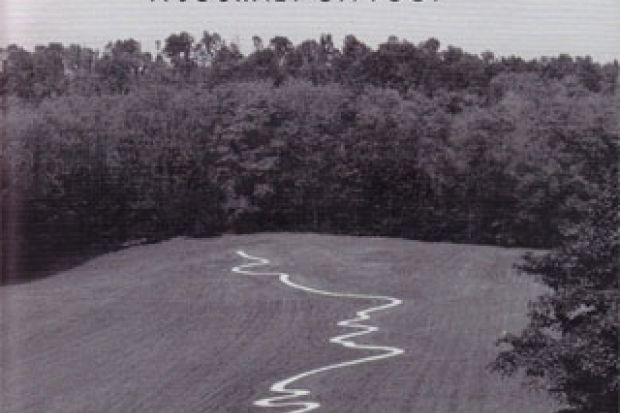This is Robert Macfarlane’s third book in a “loose trilogy about landscape and the human heart”. It is a richly patterned text, as one would expect from a University of Cambridge fellow, in which the writer is as relaxed when quoting Rousseau, Kierkegaard, Nietzsche and Wittgenstein, as he is citing the landscapes of Paul Nash, Eric Ravilious, the land art of Richard Long or describing a grebe on a pond, “punkishly tufted as Ziggy Stardust”.
Macfarlane writes in the great tradition of British wayfaring and of pastoral poetry, his path following Gilbert White, John Clare and George Borrow, but focusing principally on Edward Thomas. He gives some pointers as to the character of his own study when attempting to describe The Living Mountain, by his heroine, Anna ‘Nan’ Shepherd: “A celebratory prose-poem? A geo-poetic quest? A philosophical enquiry into the nature of knowledge?” Or perhaps it is closer to the “pastoral psychogeography” pioneered by another of his gurus, the ornithologist W.H.Hudson?
His overriding premise is that “landscape has long offered us keen ways of figuring ourselves, strong means of shaping memories and giving form to thought”. The book is “about people and place: about walking as a reconnoitre inwards”. In a four-part sequence - Tracking, Following, Roaming and Homing - Macfarlane concentrates on the marked and unmarked tracks and ways that thread the British Isles and abroad. His quest is driven primarily by past retrieval, evoking Rudyard Kipling’s “marks that show and fade,/Like shadows on the Downs” which “are the lines the Flint Men made”. It ends with the tracking of 5,000-year-old fossil footprints on Formby Point, north of Liverpool.
If this were its prime aim, the book would have the single-minded force of his earlier Mountains of the Mind. But The Old Ways encompasses both land and sea, taking the reader to Britain, Spain, Palestine and even the mountain tracks around Minya Konka in Tibet. It is, therefore, a curious hybrid, part travelogue in the tradition of Bruce Chatwin and Patrick Leigh Fermor, part philosophical exploration of the past via landscape - recalling Simon Schama’s Landscape and Memory - and part poetic musing: Thomas’ prose-poetry before Robert Frost rearranged his friend’s travelogues into verse.
Macfarlane’s prose is beautifully wrought: “Wands of dogwood made zebra-hide of the path; hawthorn threw a lattice”, although it can teeter on the edge of pretentiousness: “Paths were figured as rifts within which time might exist as pure surface, prone to weird morphologies, uncanny origami.” An eccentric cast of characters embroiders his text. On the Isle of Harris, Macfarlane meets the sculptor Steve Dilworth, who has fashioned a “Hanging Figure” from a human skeleton filled with calf organs and covered in calf flesh, which he intends to inter in a standing megalith and cover over; and in Madrid, he visits Miguel Blanco, whose Library of the Forest contains hundreds of wooden boxes, filled with objects found on walks. Harry Potter-like, Macfarlane is entranced: “For all the atmosphere of fairground clairvoyancy that surrounded the choosing [of the boxes], I felt somehow known by these boxes, this vast mute library, these books which I appeared to open but which actually opened me.”
Easily the best thing in the book is Macfarlane’s perilous, fog-bound attempt to walk The Broomway at Wakering Stairs in Essex - “allegedly, the ‘deadliest path’ in Britain” - which peters out via mudflats and sinking sands into the North Sea. It is truly Magwitchian in its terror-filled immediacy. Such brilliantly conveyed reminiscences underscore the writing and bring to mind S.P.B.Mais’ clarion call of 1946, in another age of austerity to match the present, See England First.
The Old Ways: A Journey on Foot
By Robert Macfarlane
Hamish Hamilton, 448pp, £20.00
ISBN 9780241143810
Published 7 June 2012
Register to continue
Why register?
- Registration is free and only takes a moment
- Once registered, you can read 3 articles a month
- Sign up for our newsletter
Subscribe
Or subscribe for unlimited access to:
- Unlimited access to news, views, insights & reviews
- Digital editions
- Digital access to THE’s university and college rankings analysis
Already registered or a current subscriber?
